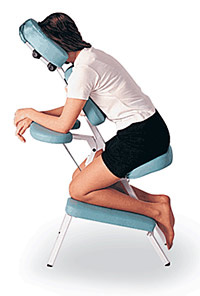15 May A Different Sort of Time
She looks a little tentative. I focus on her eyes, looking for clues as to why she is here. I notice she is clutching a small stuffed animal in her hands. We are both waiting.
Hollywood Squares is blaring on the TV. X has just won the square. I must concentrate on waiting, but the volume is too high and distracting. It takes me 30 minutes before I get up enough courage to cross the room and turn the thing down. I’m quite relieved no one objects. My angst is at the rim.
A nurse in her operating room scrubs walks nonchalantly across my path. Her hands are cupped together. Something small and encased in plastic comes along for the ride. She is delivering something to someone.
I am aware of everything as I wait for my wife to get out of surgery. My neck is stiff. I’m sitting in the audience of an off, off-Broadway play, more like community theater. Before me are construction workers, bureaucrats, husbands, and mothers, all part-time actors on stage. And I wait for each of their stories to unfold before me.
The doctor told me she’d be in the operating room for about 90 minutes. The closer that deadline approaches the tenser I become. Time moves slowly when you demand something else.
The timing of the Distant Time stories is…important, for, like most indigenous peoples of North America, they tell their most sacred stories only at night and only during the winter, partly to influence nature’s time–to quicken up winter, for instance, so a Koyukon Distant Time story may end with the words: “I thought that winter had just begun, but now I have chewed off part of it.”
A Sideways Look at Time
Jay Griffiths
I am chewing as fast as I can. I want to swallow this wait whole and be done with it. Better yet, just spit it out. Just this morning I was thinking: right now it hasn’t happened. Tomorrow at this time it will have happened and we’ll be over it. Western culture’s time is so linear: we have pasts, presents, and futures. And we move so seamlessly from one to the next. Right now I’m right in the middle of it. Better not spit it out. Like Aboriginal Australian Dreamtime, this time is extraordinary. It’s outside our normal sequence of time. Chew and be in it.

The Quicklite Chair by Golden Ratio Woodworks. Light and portable, this would be perfect for waiting rooms.
Suddenly I have an epiphany. Wouldn’t it be great if hospitals had masseuses in waiting rooms? You know, the ones you see at health fairs and malls. Fifteen minutes for $15. I could use one right now. It’s been two hours. Where’s the doctor?
Massages in surgery waiting rooms: the creative marriage of two seemingly incongruous concepts (Seth Goldin calls this edgecraft). A+B=C. Just the right “this” placed within the perfect “that” and suddenly you’ve created something with new insight. Apparently, waiting rooms are great petri dishes for me: a rich medium outside my normal time.
As an artist edgecraft is something I’ve been practicing for years. It’s exhilarating. Masseuses and anxious families. Certainly this would make for a better experience–much better than Hollywood Squares. Suddenly I am back in the waiting room. The tension punches the back of my neck.
I continue to wait for word. I start listening to my iPod. But first I must inform Natalie, the hospital volunteer who waits with all of us, that I am “over there” should my wife’s name be called. I don’t want the sound of music to obscure my notice. Natalie will pull me back to the present if need be. I start compiling my special Surgery Waiting Room Playlist:
Blue Bayou – Linda Ronstadt (more soothing than Roy Orbison’s version)
Agua De Beber – Astrud Gilberto
Come Rain or Come Shine – Billy Holiday
I’ll Never Be the Same – Diana Krall
Blackbird – Sarah McLachlan
Summertime – Sarah Vaughan
Crying – k.d. lang and Roy Orbison
Deed I Do – Lena Horne
Another hour. I ask Natalie if she can get an update on my wife.
I look for other iPods. The man in the corner sports a pair of white earphones. We knowingly nod to each other. If only I could share my playlist with him right now. He looks awfully worried.
I’m shocked. The doctor is standing in front of me. How did I miss his approach? I can’t rip my earphones off fast enough. “…according to plan.” he is announcing. “You’ll be able to see your wife in about an hour when the anesthesia wears off a bit.” Suddenly, I’ve re-entered a time I am more accustomed to.
“Congratulations!” exclaims the woman sitting next to me. Surprised by her own pronouncement she quickly adds: “At least I think that’s what your supposed to say right now.” She, too, has just returned from her own Dreamtime.
My hands are shaking with relief. I’m embarrassed as I fumble to stuff my earphones away in my backpack. I take one last look around. Four hours. Where have I been? A whole new set of actors has silently entered the stage. Someone turns up the TV. A Dukes of Hazard rerun. I think I’ll search out the hospital customer service rep to tell her my massage idea. I’ve got a little time to kill.
Related Stories on Waiting Rooms from Around the Web:
IDEO (via Business Pundit)
This Won’t Hurt a Bit (via Sleeping, Not Dreaming)




Valerie
Posted at 20:56h, 15 MayOh man, I *love* the masseuse idea.
I strongly suspect I’ve only just begun my career of hanging out in hospital waiting rooms, but they are peculiarly excruciating places.
Best wishes for a speedy recovery to your wife!
Judy Gelles
Posted at 00:42h, 16 MayHi Jeff
What happened to Susie..I hope she is ok…
Judy
Jeff
Posted at 14:14h, 16 MayYes, she’s fine, thanks. It was surgery but not life threatening.
Jacqui
Posted at 04:26h, 17 MayThanks for commenting on my entry about waiting rooms! I can see now that they’re a common curse!
I would have paid solid gold for a masseuse!